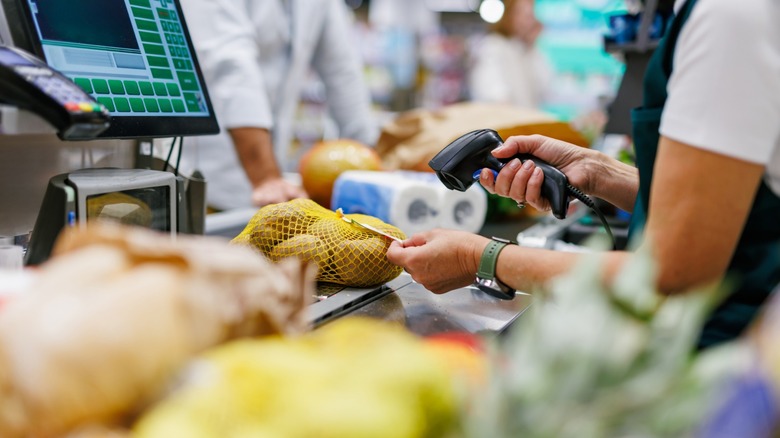How Much Extra You'll Pay For Groceries In Las Vegas
Las Vegas might be known for casinos and nightlife, but when it comes to grocery shopping, locals pay a premium. Nationwide, the average household spent just over $8,100 on groceries in 2023 — about 7.4% of the average U.S. income. But in Nevada, that share jumps to 10.1% — one of the highest rates in the country, according to a LendingTree analysis. Only Idaho spends more, and not by much.
Meanwhile, households in Washington, D.C., and New Jersey spend just 4-5% of their income on groceries. That means Nevadans are paying significantly more of their paycheck for the same essentials. High food costs aren't new in Las Vegas, but they hit harder when combined with rising rents, transportation costs, and tourism-driven inflation. And while tourists may not notice the price tag on a loaf of bread, locals feel it every week at the checkout line.
In a city where you can blow $20 on a cocktail without blinking, grocery store sticker shock might not seem surprising. But when basic essentials eat up this much of your paycheck, even Vegas locals might start feeling the pinch. Especially for families, stretching a grocery budget here takes more than planning — it takes strategy.
How to outsmart the grocery game
Grocery shopping isn't just a chore — it's a skill. And in a high-cost city like Las Vegas, learning how to shop smartly can seriously change your bottom line. It starts with shifting your mindset: Instead of shopping to simply "get full," start shopping to fuel your body. You'd be surprised how much you can save just by focusing on nutrient-dense foods over empty fillers. Think about it like this: Staples like dried beans, oats, rice, and frozen veggies don't just stretch your budget — they feed you well.
Some of the world's healthiest diets (like the Mediterranean or Okinawan diets) rely on cheap, seasonal ingredients, thoughtful portions, and less waste. In many cultures, grocery trips happen twice a week or more, with a focus on freshness and planning, not stocking up on snacks. A good rule of thumb? Shop weekly for perishables like produce and dairy, but do a few big stock-up trips per year for shelf-stable basics and frozen items. It's like investing in your future meals.
And if you're eating out less and cooking more, try to make it an experience. Throw on music, cook with someone, or plan a theme night. Eating isn't just survival anymore — it's often entertainment. But that doesn't mean each grocery store visit has to break the bank.

